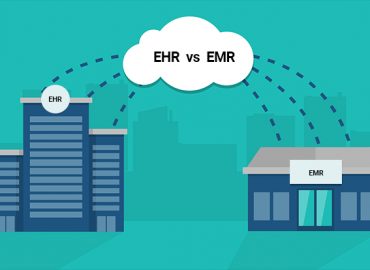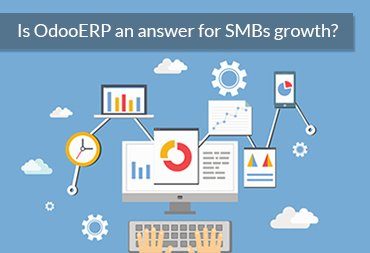Enterprise Resource Planning has been in the digital market for the last 60 years and counting. Although the adoption rate is increasing day-by-day, still various organizations are not aware of its importance. The market is moving towards a competitive edge and, so are businesses. Nowadays, ERP is getting into the trend, which results in an increase in productivity and profit for business organizations. ERP market is expecting to be worth $86 billion by 2022, as operational efficiency is improving gradually.
In this Article
What is ERP (Enterprise Resource Planning)?
Every business has a type of service and a lot of operations behind its success. There are some by default core processes on which every company has to deal with: human resource, finance, sales, marketing, supply chain, etc. In simple words, it is a tool for integrating and managing business operations for better results in profit and productivity. ERP can get utilized by different types of industries in the same manner for core processes like the Healthcare industry, Construction industry, Manufacturing industries, Logistics industries, and many more…
When is ERP needed?
ERP is something that should not be in the wishlist but should be in the to-do list. There exist a lot of processes in the organization rather than core operations. If we think, the exact time of getting ERP? So the answer is, it depends!. There is no compulsion for every company to adopt ERP. But if in case your business starts dropping, communication gets piled up in mails, or you are dealing with papers rather than clients, then this is a high time of acquiring Enterprise Resource Planning.
“Hard work will encourage you to deal with challenges, but smart work will let you win those challenges.”
Importance of ERP in Business or Organization
Not only large enterprises but small businesses should also take ERP in their considerations. Companies have experienced various benefits for making ERP as their smart choice.
-
- Managing the business under one system
The major benefit of ERP is the management of the core processes of the business in one tool. Main operations like human resources, finance, sales, manufacturing, etc. all get integrated under one system. In other words, ERP acts as a project management tool within the organization.
- Managing the business under one system
For Example: As your sales team will confirm an order, the system will automatically generate statements to the finance department, inventory department as well as the purchasing department to update and replenish the stock.
-
- Cost Reduction
Funding in ERP is a long-term investment. In the emerging trends of ERP, even open-source tools are also available in the market. For all the companies who don’t want to invest much in the software can get these ready software in their systems.
- Cost Reduction
Not only the fixed capital is getting reduced, but there is effectiveness in working capital as well. Every process is getting managed on one tool, so there is no necessity of training the employees about different platforms, and they will be able to focus on other operations as well.
-
- Improved Productivity
Tasks like generating reports, downloading and then sending the attachments, and still not able to meet the deadlines. If all these procedures can get accomplished in a single tool, then the productivity of employees will increase, and they will be able to focus on other services as well.
- Improved Productivity
Implementing ERP will lead to streamline the flow of information within the employees and increase the efficiency of day-to-day operations. Hence, improving the productivity of employees and the reduction of operational expenses.
-
- Customer Relationship Management
The most important and difficult task in the business is maintaining the customer relationship. Being so occupied with paperwork, employees get over from the customer accommodation. Resulting in the downgrade in lead generation and conversions as well.
- Customer Relationship Management
ERP systems provide leverage to the employees so that they can focus on customer’s problems and feedback. If all the work will get managed on a single platform, then ultimately, better communication will get done with customers.
-
- Better Communication
Business hierarchy is something in which communication is lacking. Employees weren’t able to get connected, and all their communication gets piled up in the mails. For every management, a collaboration between employees is a must.
- Better Communication
ERP systems facilitate system communication tools to delegate tasks, group chats, file sharing, etc. to manage projects and other operations effectively and efficiently.
Adoption Rate
- The market for ERP software in the Asia Pacific has grown to $9.67 billion by 2020 and expected to be $26.37 billion by 2026.
- The global ERP software market is valued $76.8 billion in revenue in 2018 and expected to $105.26 billion by 2022 at a CAGR of 8.2%.
- 53% of businesses are naming ERP and CRM as priority investments.
- Mid-size businesses’ adoption of ERP software had grown at a CAGR of 8.27% from 2020.
- The Aerospace and defense industries have the highest ERP software adoption rate at 7.1% by 2020 by reaching $4 billion in the license, maintenance, and subscription revenues.
The ERP is expanding its roots day-by-day. Every business should adopt the ERP system for the better and prosperous future of their businesses. There is various ERP software in the market, and few are readily available as an open-source. “An immediate action can lead to profitable results.”





